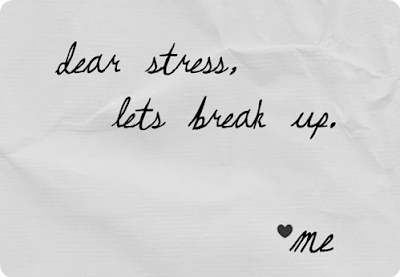We are constantly in contact with our higher selves; they are an infinite aspect of us. It is an interconnected aspect of our consciousness that sends and receives information from us at all times. It takes the practice of concentration and deeply listening to hear your higher self directly.
A lot of the time, the ways they send messages are subtle and it’s our job to figure out the meaning behind them. Our higher selves want us to learn and ask questions, not to just be given the answer. Here are some of the subtle ways our higher selves communicate with us.
1. Through our own thoughts
A common question asked within the spiritual community is when will I receive direct contact? For a lot of us, the answer is you already are.
Many of us are ready to experience a more tangible form of communication from our higher selves or separate entities but are disappointed with the lack of ‘concrete’ communication.
The point of these energies being subtle is for us to learn how to navigate through them.
When we can feel subtle shifts in energy, we can know the difference between multiple entities sending us messages and what specifically feels different about each energy.
If a thought comes in that seems out of place or really sticks out; pay attention to it. Thoughts are a constant stream in our mental river; they are always flowing but we can control the direction.
We need to remember that a thought exists as a ‘physical’ or ‘real’ thing, just in a slightly higher frequency.
The other day I was trying to meditate when a line from a song kept repeating SO intensely in my head. It was like it was on full blast, fast forward and repeat, constantly playing the line: Life is what you make it.
I kept trying to ignore it and got frustrated with myself for having this song replay like this. It was like overlapping itself it was playing so fast.
The second I acknowledged the message, the repeating instantly stopped and it felt like this dense energy was lifted off me. I was ignoring the message until I realized how incredibly important it was for me to hear it in that moment. I knew without a doubt it was a message from an external source.
With things like this, you just know. You don’t need to guess or speculate when you can trust your feelings.
2. Through media
This one’s interesting and fun when you are really paying attention. Something that has happened to me throughout my whole life is when a lyrical song, movie or some kind of media with dialogue is playing, my thoughts or conversations ALWAYS sync up with it.
This happened earlier today even. I was talking to a friend when she started to say “I love the ocean” but stalled on saying Higher-Self 6‘ocean’ and the song playing in the background lined up perfectly and the singer said the word ocean.
This is the easiest synchronicity to brush off because it’s so ‘mundane’. It’s also the most subtly beautiful way to receive direct messages from the other side of the veil.
Almost everyday, I’ll be thinking a thought or saying something and at the exact same time a word from a song will be said the exact same time I think of it. This happened the other day too, when I was feeling upset about a relationship issue and this song came on the radio.
It kept repeating lines that said something like let it go, don’t dwell, and move on. The core message was exactly what I needed to hear and I couldn’t help but cry and then shift my vibration to a lighter one.
When things like this happen, I don’t need to question if it’s a coincidence or not – I know it’s a message because it creates connections in my brain.
3. Through People
Your-Higher-Self
So, what if some people were extensions of your higher self?
What I mean is, say, you’re crying on a park bench and a lovely man or woman approaches you and asks if you’re alright. Maybe the strike up a conversation and momentarily bring you peace.
This happened to my friend a few weeks ago as she visited her dad’s grave. A man approached her and brought such a loving, comforting energy that she said she knew was her dads.
Source energy is infinite; there is so much more than this physical reality.
Source
A lot of the time, the ways they send messages are subtle and it’s our job to figure out the meaning behind them. Our higher selves want us to learn and ask questions, not to just be given the answer. Here are some of the subtle ways our higher selves communicate with us.
1. Through our own thoughts
A common question asked within the spiritual community is when will I receive direct contact? For a lot of us, the answer is you already are.
Many of us are ready to experience a more tangible form of communication from our higher selves or separate entities but are disappointed with the lack of ‘concrete’ communication.
The point of these energies being subtle is for us to learn how to navigate through them.
When we can feel subtle shifts in energy, we can know the difference between multiple entities sending us messages and what specifically feels different about each energy.
If a thought comes in that seems out of place or really sticks out; pay attention to it. Thoughts are a constant stream in our mental river; they are always flowing but we can control the direction.
We need to remember that a thought exists as a ‘physical’ or ‘real’ thing, just in a slightly higher frequency.
The other day I was trying to meditate when a line from a song kept repeating SO intensely in my head. It was like it was on full blast, fast forward and repeat, constantly playing the line: Life is what you make it.
I kept trying to ignore it and got frustrated with myself for having this song replay like this. It was like overlapping itself it was playing so fast.
The second I acknowledged the message, the repeating instantly stopped and it felt like this dense energy was lifted off me. I was ignoring the message until I realized how incredibly important it was for me to hear it in that moment. I knew without a doubt it was a message from an external source.
With things like this, you just know. You don’t need to guess or speculate when you can trust your feelings.
2. Through media
This one’s interesting and fun when you are really paying attention. Something that has happened to me throughout my whole life is when a lyrical song, movie or some kind of media with dialogue is playing, my thoughts or conversations ALWAYS sync up with it.
This happened earlier today even. I was talking to a friend when she started to say “I love the ocean” but stalled on saying Higher-Self 6‘ocean’ and the song playing in the background lined up perfectly and the singer said the word ocean.
This is the easiest synchronicity to brush off because it’s so ‘mundane’. It’s also the most subtly beautiful way to receive direct messages from the other side of the veil.
Almost everyday, I’ll be thinking a thought or saying something and at the exact same time a word from a song will be said the exact same time I think of it. This happened the other day too, when I was feeling upset about a relationship issue and this song came on the radio.
It kept repeating lines that said something like let it go, don’t dwell, and move on. The core message was exactly what I needed to hear and I couldn’t help but cry and then shift my vibration to a lighter one.
When things like this happen, I don’t need to question if it’s a coincidence or not – I know it’s a message because it creates connections in my brain.
3. Through People
Your-Higher-Self
So, what if some people were extensions of your higher self?
What I mean is, say, you’re crying on a park bench and a lovely man or woman approaches you and asks if you’re alright. Maybe the strike up a conversation and momentarily bring you peace.
This happened to my friend a few weeks ago as she visited her dad’s grave. A man approached her and brought such a loving, comforting energy that she said she knew was her dads.
Source energy is infinite; there is so much more than this physical reality.
Source

























